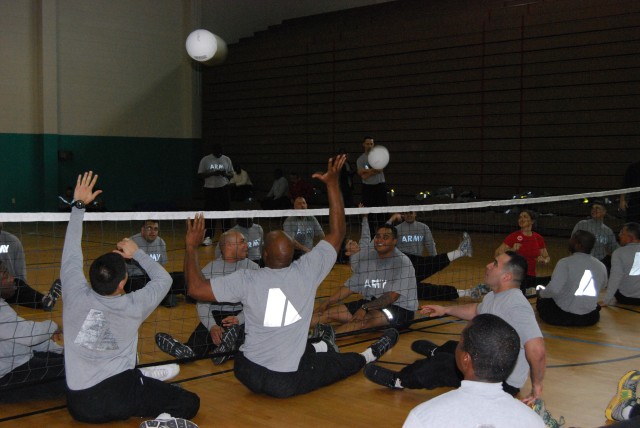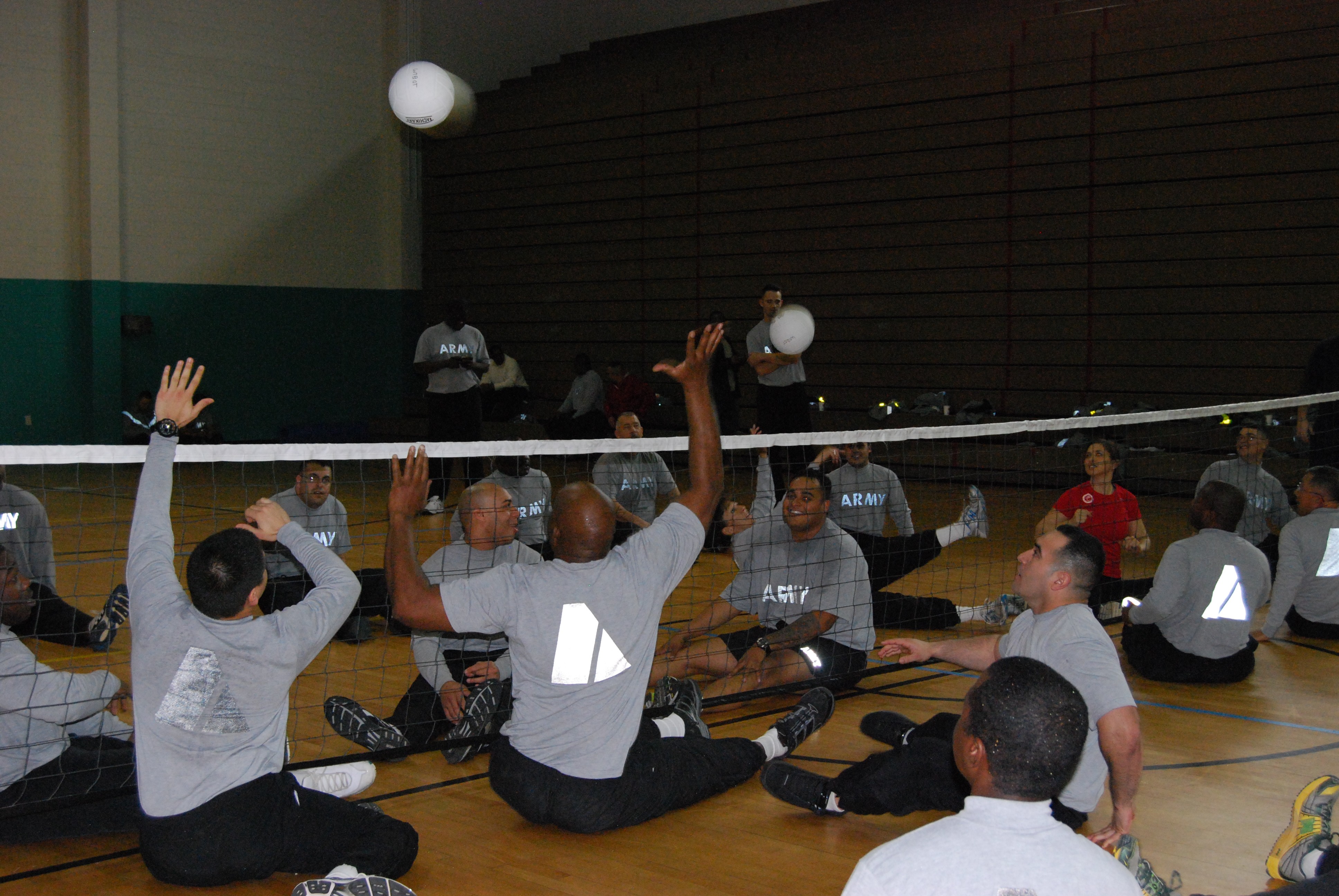FORT STEWART, Ga. - The U.S. Paralympic Train-to-Trainer Expo kicked-off at Newman Fitness Center, Feb. 10. The two day exposition was aimed to train the Warrior Transition Battalion in adaptive sports, which featured wheelchair basketball, seated volleyball, swimming and spinning.
"What we have here is a cooperative between the U.S. Paralympics and the Warrior Transition Battalion," said Lt. Col. William Reiteneyer, commander of the Warrior Transition Battalion at Fort Stewart. "[The U.S. Paralympics] agreed to bring in coaches and world class athletes, paralympians, who have come in to train our battalion, orders and cadre, in four different adaptive sports and venues."
While the Soldiers from the Warrior Transition Unit are participating in the expo, some of the Warriors are first-time participants in adaptive sports. The participating Soldiers have physical and/or mental restrictions due to injury. The intention of the expo is to enhance the Soldiers' ability to participate in sports, encourage physical fitness, and build an overall foundation of wellness.
"We're hosting a U.S. military paralympic train-to-trainer expo, so that our cadre and Soldiers, who are WTB members, learn adaptive sports methods," explained Debra DeHart, Chief Occupational Therapist at the Warrior Transition Battalion at Fort Stewart. "[The expo] helps enhance their participation in sports again, promote fitness and wellness, and camaraderie."
A challenge some of the Soldiers posed while participating in the expo is restriction, whether physical and/or mental. Prior to injury, physical activity was part of a daily routine for some Soldiers. Others were very athletic, participating in numerous kinds of sports.
"Introducing adaptive sports is a challenge because a lot of our Soldiers are used to being very athletic in participating in regular workouts like jogging and basketball," said DeHart. "So to change their mindset and to learn a lot of new techniques is a challenge for them. But, once they get involved in it, they start seeing the benefit for themselves."
Armed with a positive attitude and supplied with energy, Sgt. Christopher Lowe, B Co., Warrior Transition Unit, understands the challenges of adaptive sports. His injury required him to be in a wheelchair.
"Playing sports post injury has been difficult because I spent most of my time the first several months in a wheelchair, and I still don't have use of my right leg," shared Sgt. Lowe. "With the help of the Warrior Transition Unit . . . I was able to get a somewhat normal life back."
Despite his injury, Sgt. Lowe is determined to continue playing in adaptive sports. His interest in the warrior games is his focus as he trains to compete in the Warrior Games in May at Colorado Springs, Co.
"I want to participate in the Warrior Games because last year I competed in a warrior game and got fourth," explained Sgt. Lowe. "I've always been active in sports. I played lacrosse for Georgia Southern University; I'm on their cycling club."
As he participates in wheelchair basketball, Sgt. Lowe's passion and enthusiasm is evident on the court. The morale of the Soldiers and overall vibe of the expo is an exciting one, with players cheering as the games continue.
"Being able to play sports again is awesome," said Sgt. Lowe. "Being out on the field, I don't feel the pain anymore. Being able to go out and play on the field actually does more than any drug that the Army can give me."


Social Sharing